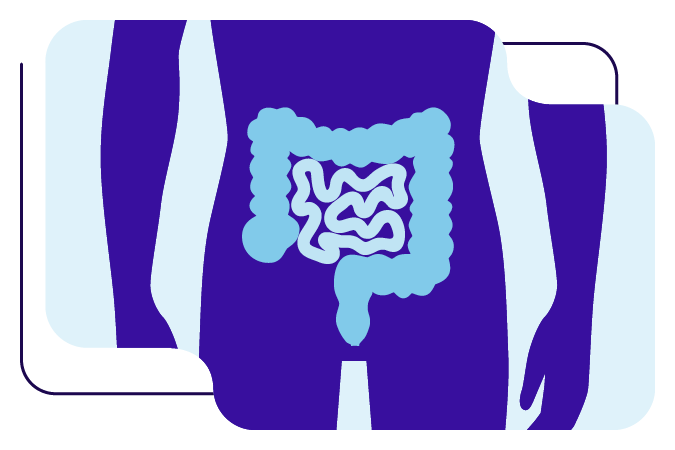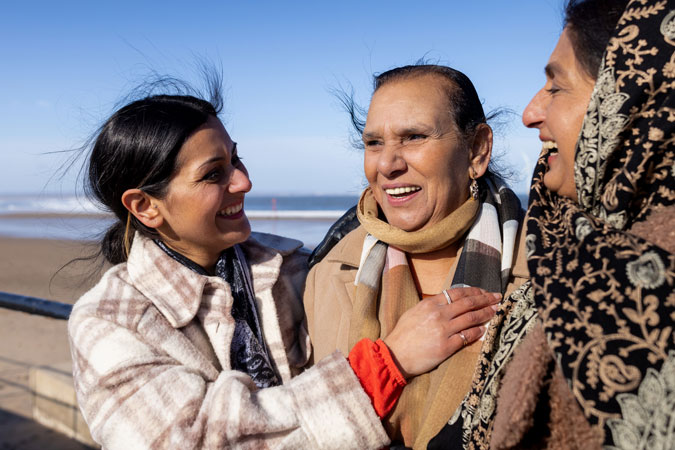UK cancer statistics
Find the latest cancer statistics for the UK, including incidence and mortality, and how to prevent cancer. 1 in 2 people in the UK will be diagnosed with cancer in their lifetime.

On this page
Cancer in the UK
In 2021, the most recent year for which data is available, there were 395,181 cases of cancer in the UK. Of these, 200,870 were in men and 194,311 in women1.
Compared with the 2019 data, this is an increase of just under 7,400 cases (around 2%). Cases in men have slightly increased by 0.2% (up from 200,386), and cases in women have gone up by 3.7% (up from 187,434).
Although there are very subtle differences, “incidence” and “cases” broadly mean the same thing, and refer to the total recorded numbers. Prevalence refers to the proportion of a population who have cancer over a specified period of time.
| Cancer incidence | Cancer mortality | |
|---|---|---|
| Total | 395,181 | 168,873 |
| Men | 200,870 | 89,625 |
| Women | 194,311 | 79,248 |
Most common cancers
The table below shows the most common 15 cancer types in the UK, based on new cases diagnosed in 2021.
The top 4 cancer types accounted for more than half (53%) the total number of new cases in 2021 in the UK.
| Ranking | Cancer type | New cases 2021 |
|---|---|---|
| 1 | Breast | 59,517 |
| 2 | Prostate | 51,575 |
| 3 | Bowel | 49,914 |
| 4 | Lung | 48,904 |
| 5 | Skin (melanoma) | 18,845 |
| 6 | Non-Hodgkin lymphoma | 13,512 |
| 7 | Kidney | 12,192 |
| 8 | Pancreas | 11,445 |
| 9 | Head and neck | 11,090 |
| 10 | Bladder | 11,052 |
| 11 | Womb (uterus) | 10,617 |
| 12 | Leukaemia | 9,437 |
| 13 | Oesophagus | 9,436 |
| 14 | Ovary | 7,070 |
| 15 | Stomach | 6,813 |
Breast cancer
Breast cancer is the most common type of cancer among women in the UK, with 59,517 new cases in 2021. Three in 10 new cases of cancer in women in 2021 was breast cancer (30.5%).
Breast cancer is rare in men, with around 400 new cases diagnosed each year in the UK.
The most common cancers for women in the UK
| Cancer type | New cases 2021 |
|---|---|
| Breast | 59,115 |
| Lung | 23,972 |
| Bowel | 21,945 |
| Womb (uterus) | 10,617 |
| Skin (melanoma) | 9,263 |
| Ovary | 7,070 |
| Non-Hodgkin lymphoma | 5,838 |
| Pancreas | 5,715 |
| Kidney | 4,290 |
| Leukaemia | 3,844 |
Prostate cancer
Prostate cancer is the most common cancer among men in the UK. In 2021, 51,575 cases of prostate cancer were diagnosed – more than a quarter (26%) of all new cases of cancer in men in the UK.
The most common cancers for men in the UK
| Cancer type | New cases 2021 |
|---|---|
| Prostate | 51,575 |
| Bowel | 27,969 |
| Lung | 24,932 |
| Skin (melanoma) | 9,582 |
| Bladder | 8,030 |
| Kidney | 7,902 |
| Non-Hodgkin lymphoma | 7,674 |
| Head and neck | 7,420 |
| Oesophagus | 6,558 |
| Pancreas | 5,740 |
Bowel cancer
Also known as colorectal cancer, bowel cancer is the cancer type with the 3rd highest number of new cases in the UK. In 2021, there were 49,914 new cases (men and women combined), accounting for 12.6% of the total number of new cases.
Lung cancer
Lung cancer is the 4th most common type of cancer in the UK across men and women, with 48,904 new cases in 2021 – totalling 12.4% of all new cases (men and women combined).
Cancer mortality
In the UK, there were 168,873 cancer deaths in 2021, the latest year for which data is available. Of these cancer deaths, 89,625 were in men, and 79,248 were in women. That’s more than 462 deaths every day.
It’s notable that although cancer deaths have gone up since 2019 (when there were 166,502 recorded), this represents an increase of approximately 1%.
| Cancer type | Number of deaths |
|---|---|
| All cancers | 168,873 |
| Lung | 33,513 |
| Bowel | 17,527 |
| Prostate | 12,369 |
| Breast | 11,326 |
| Pancreas | 10,104 |
| Oesophagus | 8,067 |
| Liver | 6,095 |
| Bladder | 5,822 |
| Leukaemia | 4,967 |
| Non-Hodgkin lymphoma | 4,882 |
| Brain | 4,530 |
| Kidney | 4,175 |
| Lip, oral cavity and pharynx | 3,879 |
| Ovary | 3,865 |
| Stomach | 3,693 |
| Myeloma | 3,202 |
| Womb (uterus) | 2,689 |
| Skin (melanoma) | 2,482 |
| Cervix | 908 |
| Gallbladder | 737 |
| Thyroid | 403 |
| Nasopharynx | 136 |
-
Notes on the data
- Last updated and reviewed: Oct 2024
- Mortality data for England: updated to 2022 (released Oct 2024)
- Mortality data for Wales: 2022
- Mortality data for Scotland: 2021. Published Oct 2022. Latest release available on the Public Health Scotland website.
- Mortality data for NI: 2021
- Results exclude non-melanoma skin cancer.
- Nasopharynx not available in Welsh data.
- Mesothelioma not available in NI data.
- For NI, mortality number counts are available in T24 all cancer and T19/T21 for site-specific cancers (bottom of each page gives counts for 2021).
- Lip, oral cavity and pharynx referred to as “head and neck” within data from NI.
- Melanoma skin cancer referred to as “malignant melanoma” within data from NI.
- Thyroid stratified by gender is not available in NI data.
- Gallbladder mortality data not available for Scotland.
- Thyroid mortality data not available for Scotland.
- Nasopharynx not available in Scottish data.
- Within the Scottish mortality data, cancers of the uterus include ICD-10 codes C53-C55.

Sign up to hear more from us
Get the latest cancer prevention-related news and updates straight to your inbox
How to prevent cancer
Cancer is the cause of death for a large number of people each year. Overall, scientists estimate that around 40% of cancer cases could be prevented. That’s around 158,000 cases every year in the UK.
Different factors can influence your chances of developing cancer. However, there are steps that can be taken to help people reduce that risk.
Alongside not smoking, eating a healthy diet, being more active each day and maintaining a healthy weight are important ways you can reduce your cancer risk.
1 Cancer statistics based on combined data from England, Northern Ireland, Scotland and Wales. All Incidence data refers to 2021 data. Complied by World Cancer Research Fund, 2024.






